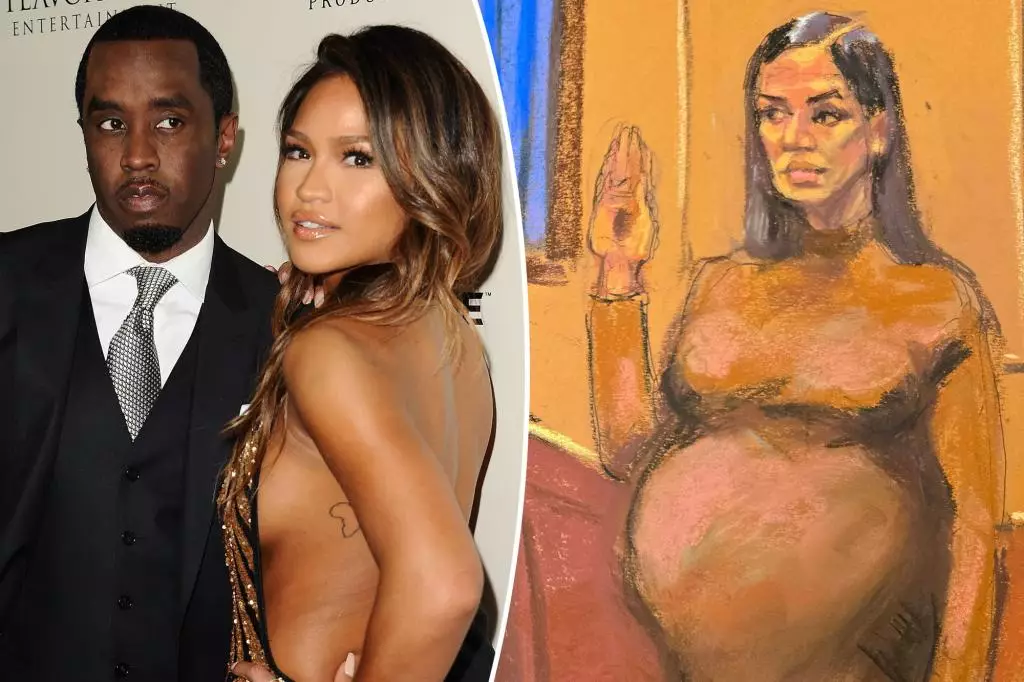Cassie Ventura’s recent testimony has thrown the spotlight on one of the most controversial figures in entertainment: Sean “Diddy” Combs. In what has become a sensational sex trafficking trial, Ventura has bravely opened up about her tumultuous relationship with the hip-hop mogul, shedding light on the disturbing environment she describes as the infamous “Freak-Offs.” Ventura’s revelations provide an eye-opening view into the darker side of celebrity culture, disclosing not just the alleged excesses of fame but the emotional and physical traumas lurking beneath the surface.
During her testimony, which took place in a New York federal court, Ventura painted a vivid picture of the wild parties and the chaotic lifestyle she was thrust into. “The ‘Freak-Offs’ became a job,” she stated, highlighting how these events consumed her life: “There was no time to do anything else but do them, then try to recover.” This powerful phrase underscores her feelings of entrapment and the intensely demanding nature of her experiences, where pleasure and performance became intertwined in an unhealthy, exploitative manner.
The Horror Behind Closed Doors
As her testimony progressed, Cassie did not hold back on the violence she allegedly endured. “He would bash me on my head, knock me over, drag me, kick me, stomp me on the head if I was down,” she described, making it clear that the physical abuse was not an isolated incident. The shocking details reveal a pattern of intimidation and control; a narrative that extends beyond mere party antics. In a society deeply affected by conversations surrounding domestic violence, her accusations raise important questions about power dynamics and the often-hidden struggles of those in celebrity relationships.
The psychological manipulation purportedly employed by Combs is equally alarming. Cassie noted how minor disputes could lead to violent outbursts, with phrases like “fix [your] face or watch [your] mouth” signaling a disturbing relational control that infiltrated their daily life. This begs a profound inquiry into how emotional abuse can manifest within seemingly glamorous lifestyles, penetrating the façades of happiness and success that often surround celebrity relationships.
The Aftermath and Broader Implications
Cassie’s recent filing of a lawsuit against Diddy not only aligns with her personal quest for justice but also contributes to a growing collective consciousness around sexual misconduct, particularly in high-profile circles. The timing of her testimony is significant, as it coincides with a societal movement demanding accountability for abuse and coercion. Following the settlement of her claims, which Diddy quickly agreed to within 24 hours, it became evident that this issue transcends individual experiences; it surfaces historical patterns of silencing and non-disclosure in the entertainment industry.
Moreover, the public’s response to Cassie’s revelations can no longer be understated. In an era where victims are increasingly willing to share their stories, her bravery challenges both societal stigma and the normalization of abuse within powerful relationships. The courtroom drama has morphed into a broader conversation about consent, agency, and the influence of fame. Ventura’s ordeal is emblematic of many who suffer in silence, with every word she spoke resonating deeply beyond the courtroom.
A Call for Cultural Reckoning
As Diddy’s trial unfolds, it’s imperative to look beyond the sensationalism that often accompanies celebrity news. Analyzing Cassie’s testimony reveals not only her personal battles but also highlights the urgent necessity of cultural reckoning. As more stories surface, society must confront the complex narratives of abuse, exploring the layers of guilt, shame, and silence that too often accompany such experiences.
For Cassie Ventura, taking the stand was not just about her; it was about all those who have been subjugated within shadowy realms of power and influence. By speaking her truth, she has sparked critical conversations that demand vigilance and change—both within the music industry and society at large. The implications of her testimony go far beyond the courtroom, beckoning a new era of accountability and engagement against the backdrop of fame and its discontents.

